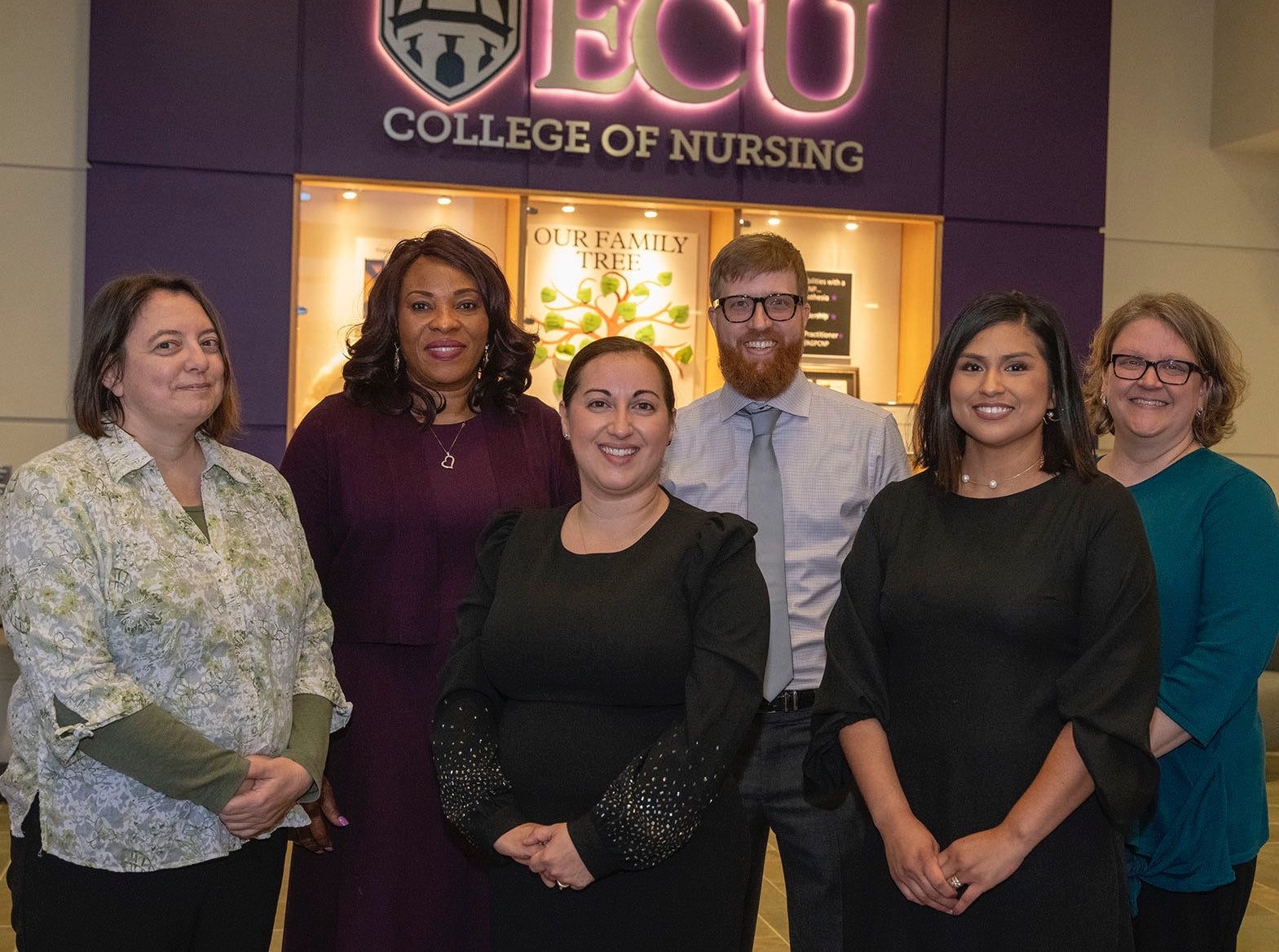Increasing Access to Mental Health Care
First MSN cohort of psychiatric mental health nurse practitioners celebrate graduation

The College of Nursing celebrated the graduation of its first cohort of MSN Psychiatric Mental Health Nurse Practitioner students on Friday, Dec. 13, 2019. They are, from left: Melanie Opack, Mercy Ogunjobi, Judylyn Hobson, Matthew Hobbs, Rubi Merino and Larisa King. Photo by Jeremy Smith
The College of Nursing celebrated the graduation of its first Master of Science in Nursing (MSN) Psychiatric Mental Health Nurse Practitioner (PMHNP) at its fall commencement ceremony on Friday, Dec. 13.
All six of the graduates of the two-year program had jobs lined up by graduation. Many will be working where they completed clinical hours as part of the program, most will be practicing in rural parts of the state and all will be serving patients in North Carolina.
“They’re really filling a gap,” concentration director Dr. Wanda Lancaster said. “It really is providing more access to mental health care and substance use and addiction care.”
The fact that all of the program’s fall graduates will be staying in the state to practice is by design.
“In our program we only accept North Carolina residents,” Lancaster said. “That’s our mission, to infuse North Carolina with as many psychiatric providers as possible.”
Two additional students from the cohort are slated to graduate in the spring from the program, which is completed almost entirely online with the exception of two days per semester on campus.
According to the American Psychiatric Nurses Association, psychiatric mental health nurses are the fastest growing non-physician specialties in health care, with a predicted 17 percent growth in the profession by 2025.
Psychiatric mental health nurse practitioners are prepared to treat a variety of mental health concerns with both therapy and medication management. As part of their required coursework within this ECU concentration, students completed MAT waiver training in order to become licensed to prescribe buprenorphine, which is used to treat opioid addiction. Learning to treat opioid dependency is crucial for mental health providers, Lancaster said.
Nearly 200 people die from drug overdose in the United States every day, and North Carolina had the third highest increase in the death rate due to drug overdoses in the U.S. in 2017, according to the Centers for Disease Control.
Previously, the PMHNP concentration admitted post-master’s students and graduated one cohort of nine students before admitting students as part of the MSN program beginning in 2017. Three post-master’s students also graduated with the MSN cohort this fall.
-by Natalie Sayewich, University Communications